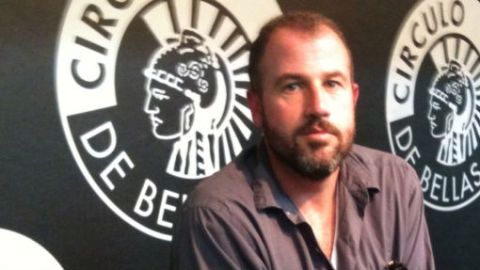A Million Little Pieces Revisited: Can the Truth Ever Set James Frey Free?

James Frey tells Big Think that “The Million Little Pieces” controversy with Oprah “really freed me to be as radical as I want, to break every rule I want, and to not have to care what other people thought.”
Watch the video here:
James Frey: The truth will set me free. . . . I don’t care much about truth, or I don’t care about the definition of truth that most people live by. I don’t think truth and fact are the same thing. I think truth is an incredibly subjective individual thing.
The first time I started writing A Million Little Pieces I’d been searching for a voice for years and years and years, and one day I sat down and I started writing that book, and I wrote the first sentence. And it felt right. It felt more right than anything I had ever written. And so I kept going, and over the course of a couple days I wrote probably the first fifteen or twenty pages of it. And I had never worked that fast before. I was kind of stunned by it. At the end of it I looked at those pages and I was, like, I did it. This is what I’ve always, this is how I’ve always been trying to write. This is the voice I’ve always been trying to find.
That book coming out and the controversies related to it were obviously a big moment for me probably not in the ways people might think. You know, I didn’t write that book as a memoir. I’ve never thought of it as a memoir. We didn’t submit it to publishers as memoirs, even though it was published as one. When the controversy blew up and I was sort of written off by the publishing business and by the literary community, instead of being upset about it I was kind of excited. I was, like, I had to work within your system. I wrote a book that wasn’t what it was published as. I always knew I wasn’t born to work in that system, and I won’t ever do it again. You know, from that point forward I was free. I got kicked out of a club I didn’t want to be a part of, and it was awesome.
Since then, I’ve literally done what I want. I call it what I want. I don’t say I write fact or fiction. I don’t write novels or memoirs or, you know, narrative non-fiction. I just write books. I tell stories. The expectations and rules and conventions of the literary community or the publishing community or society in general mean absolutely nothing to me. What means something to me is telling a story in the way I think is the right way to do it, and if I need to use factual elements or fictional elements or things that live in the gray area between, if I have to use grammar of my own invention, if I have to lay the pages out. Even at this point in my career I publish my books how I want, you know, I don’t publish through conventional publishers anymore. I publish through an art gallery. I publish my books online, myself.
The Million Little Pieces controversy really freed me to be as radical as I want, to break every rule I want, and to not have to care what other people thought. It was great.




